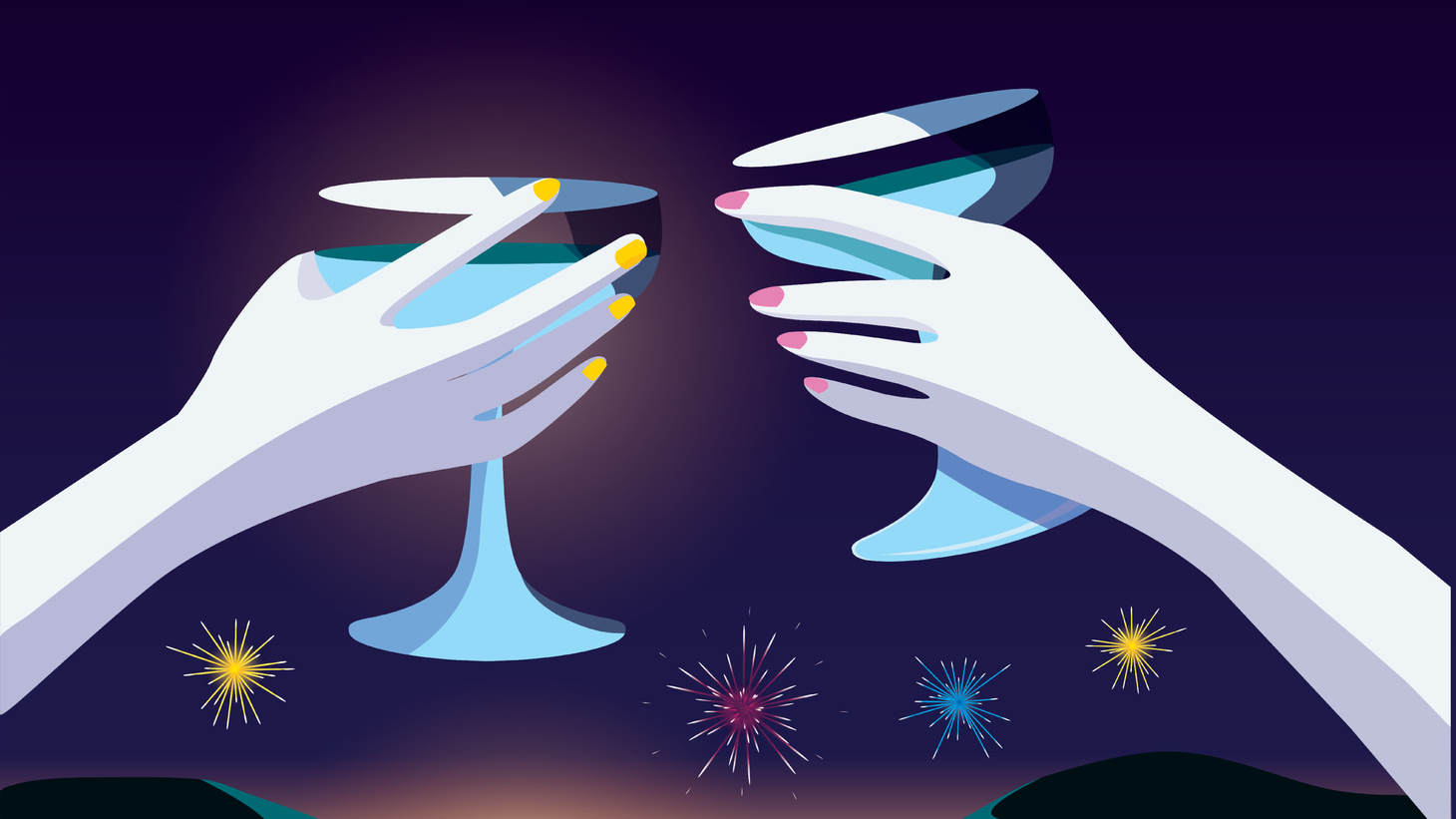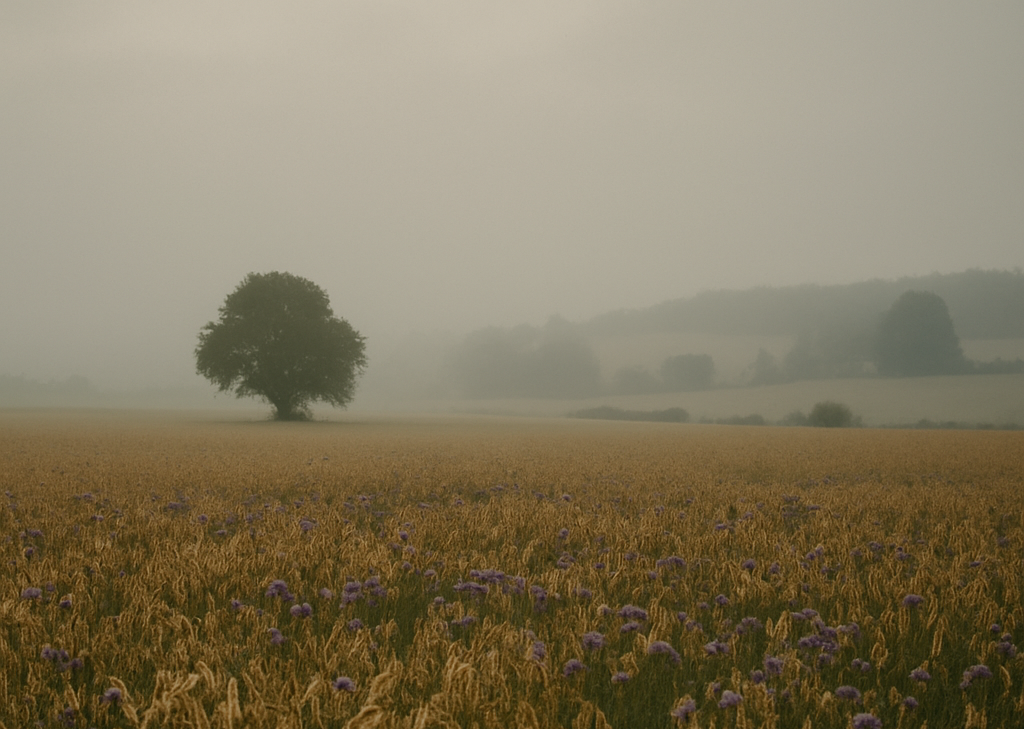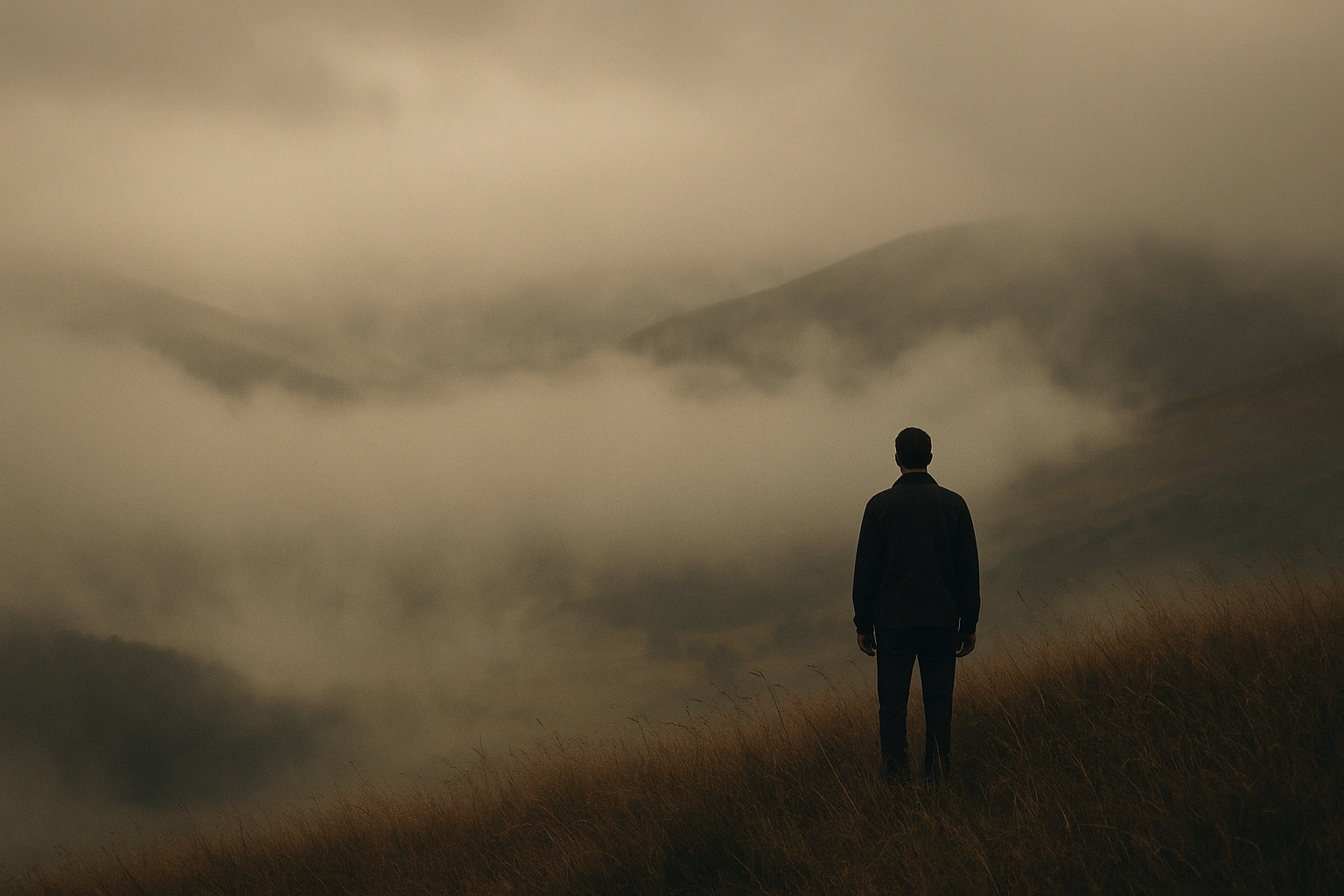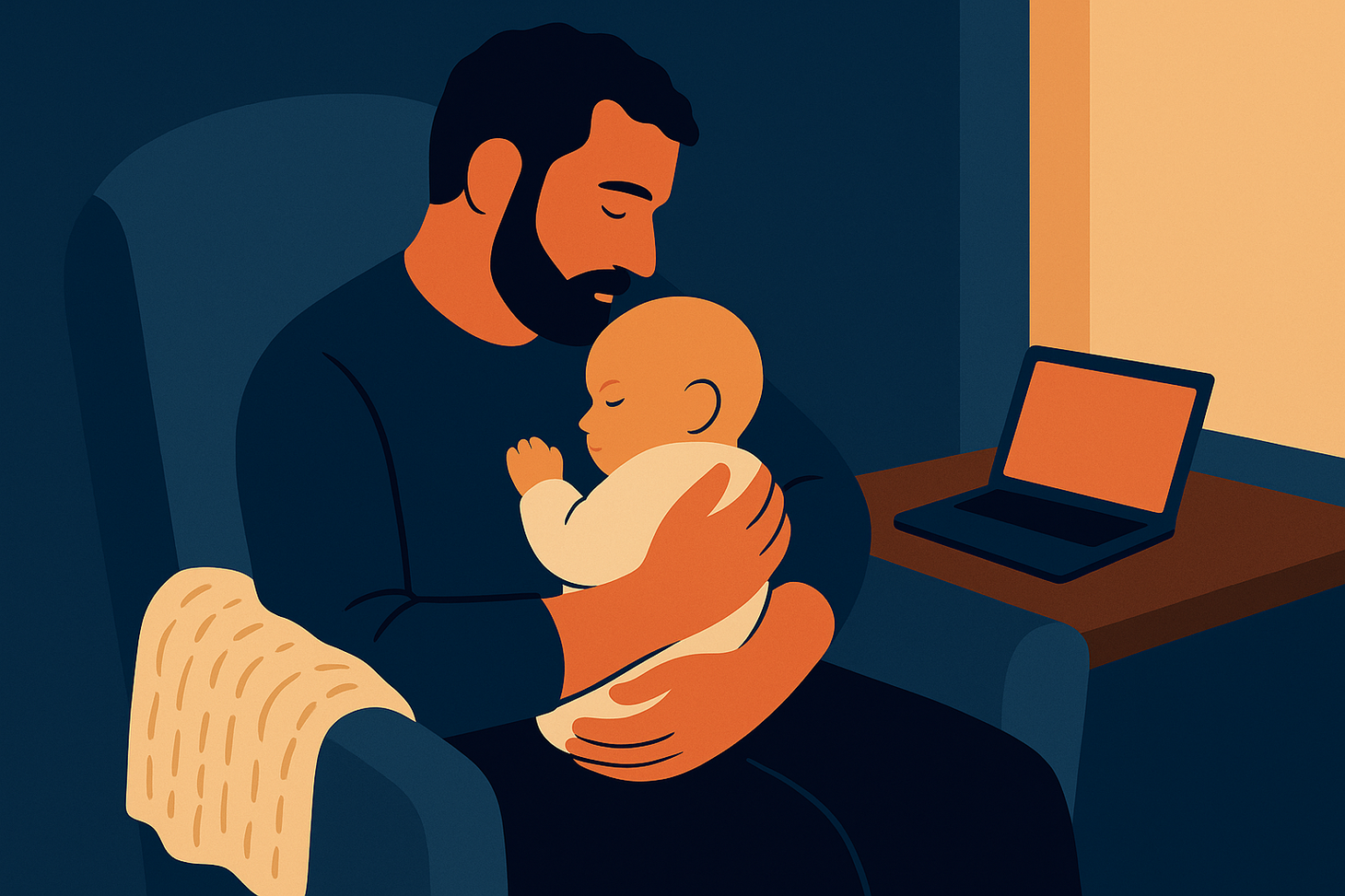Rethinking Drinking – Alcohol, Depression, and Startup Culture
For years, I have consumed alcohol under the assumption that it provides a source of fun or calm, but I’ve had a growing intuition alcohol might be more foe than friend.

A Walk in the Dark
Looking for some support? If now is the time to consider coaching (or a CEO peer circle), reach out here.
Several weeks ago, I was walking along a path in the Presidio with a good friend. It was 6:15 AM, and the sun had not yet risen. I was in town to facilitate a client offsite, and since my friend lives in the Presidio, we decided to take a catch-up walk before our respective days got busy.
As we walked the paths and caught up on the six months since we had last seen each other, she shared a surprising piece of news: “I’ve quit drinking!”
I asked her what had motivated the decision and how it had been so far. She shared that curiosity about what life might feel like without alcohol had been bubbling up for a while and that the experience had been surprising on several levels. What stuck with me most were the following comments:
I feel happier and more relaxed.
I cannot believe how long the days are!
Her comments brought to the surface my own latent curiosities about drinking. I would say I have been sober-curious for the last year or so. I have never been a heavy drinker and didn’t start drinking at all until I was 25. But over the years, drinking has become a regular part of my life. I drink five or so nights a week, a couple drinks a night. I would consider myself a "normal" drinker among my friend group. While I’ve never thought of myself as having a drinking problem or being an alcoholic, I have nonetheless found myself curious about quitting drinking—or at a minimum, rethinking its role in my life.
This fortuitous conversation in the Presidio was not an isolated event. I’ve noticed a number of my more thoughtful and successful friends rethinking the role of alcohol in their lives and, in several cases, deciding to give it up entirely.
What Has Made Me Curious
What has surprised me in listening to friends arrive at this conclusion is that none of them are alcoholics or problem drinkers. They are successful, fit, healthy, and would likely be described by most who know them as normal drinkers—just like me. This has made me curious about what they see that I might be missing.
Aside from witnessing these friends, I’ve also been considering eliminating drinking in my own life for reasons that have surfaced in my own mind.
First, I’ve realized that I often drink during the best moments of my life—evenings with close friends, birthdays, holidays, and similar events. Culturally, we’re told these are times to celebrate and, therefore, to drink. But I’ve noticed that even having just a couple of drinks leaves me at the end of the evening thinking, "That went faster than I would have liked, and I wasn’t as present and connected with those around me as I wanted to be."
Presence has become an increasingly valuable currency in my life. When I started training to become a coach (which feels like months ago but was somehow six years ago!), my instructor spoke about presence as the key ingredient in coaching. This surprised me because so much of what we value in Western culture revolves around what we say or do. But presence—the coach’s presence, he explained—was what had the potential to make a coaching session unlike any other hour in the client’s week.
Practicing and witnessing the power of presence in coaching has made me desire more of it in my own life. A dinner with a good friend or a group of friends, where I bring an intention to be deeply present and curious, creates a very different experience for me (and, I suppose, for them). I want more presence in my life, not less.
A second area that has made me curious about stopping drinking is mental wellness and my day-to-day level of joy. For years, I have consumed alcohol under the assumption that it provides a source of fun or calm—to the point where contemplating removing alcohol from my life made me wonder if I’d experience less fun and calm without it. But I’ve had a growing intuition, informed in part by witnessing friends experiment with sobriety, that alcohol might be more of a foe than a friend in these areas.
The third area that has made me sober-curious is sleep. I’ve noticed that in my forties, even one drink over dinner can significantly disrupt my sleep. If I drink nothing, I generally sleep well through the night. If I wake up in the middle of the night, I can usually fall back asleep quickly after reading a couple of pages of a novel. But if I’ve had one or two drinks in the evening, my sleep is noticeably worse—I’ll often wake up around 3 AM and not fall asleep again for an hour or two. My resting heart rate is also much higher on those nights as my body processes the alcohol, leading to lower-quality sleep. As a result, I have less energy the next morning and feel worse much of the day.
The Experiment
I’m now a month into my experiment with cutting alcohol out of my life entirely. I didn’t start with the intention of quitting for a specific period, nor did I decide that I was giving up drinking forever. I didn’t even begin with a conviction that alcohol was bad for me. Instead, I was simply curious to notice how the absence of drinking impacted these key areas of my life.
For example:
- How would I experience social and celebratory situations differently without alcohol? Would I feel more present and experience more joy and connection, or would I be missing something important?
- How would my day-to-day mental state change?
- How would my sleep, recovery, and overall sense of health shift, if at all?
I’ll discuss the results of my personal experiment so far. But first, I thought sharing some of the research I came across on this journey might be helpful.
The Connection Between Alcohol and Mental Health
Depression has been a presence in my life off and on for as long as I can remember. As a teenager, I knew I experienced days of deep sadness, but I didn’t know it had a label. In my 20s, I thought depression was something I had to figure out—that if I could just think the right thought or do the right thing, I would feel better and swing back to a happy state.
By my mid-30s, I came to view my mental state like the weather. Some days, I felt happy and content; other days, I felt sad or anxious. Over time, I’ve learned that external factors also influence my perceived mental state—things like sleep, time spent on social media, diet, and alcohol consumption, among others.
During my time as a founder and CEO, depression was a frequent visitor. I found the daily swings of startup life difficult and often tied my own well-being to my company’s recent performance.
I wasn’t alone. In fact, mental health struggles are significantly more common among entrepreneurs than the general public:
- 30% of entrepreneurs experience depression, compared to 7.1% of the general population.
- 27% of entrepreneurs report anxiety versus 2.7% in the general population.
If I could go back and coach myself as a young founder, I would advise getting as informed as possible about the factors that impact mood aside from the company’s performance. If I couldn’t control the crazy ups and downs of building a business from nothing, I could at least control other elements of my life that affect my mental state.
What I didn’t know then—but know now—is that even moderate alcohol use can have a tangible impact on mental health.
The Science: Alcohol, Depression, and Anxiety
Let’s take a quick look at the science linking alcohol to depression and anxiety.
The PMC Study on Alcohol & Depression tells us that drinking and depression have a bidirectional relationship:
- Drinking increases the risk of depression
- Depression increases the likelihood of drinking
- People with alcohol dependence are 63.8% more likely to suffer from major depressive disorder
Culturally, we are taught that alcohol is a source of pleasure, fun, and stress relief. But while that first drink does make us feel good, as alcohol leaves the body, it triggers anxiety and depressive symptoms. This is why, after drinking, you might find yourself waking up at 3 AM with a vague sense of worry or dread.
Founders don’t need another reason to wake up at 3 AM feeling anxious.
Furthermore, if founders are already more prone to depression—and alcohol exacerbates depression—maybe we should take a closer look at the role drinking plays in our own lives and in startup culture as a whole.
Alcohol’s Role in Startup Culture
Drinking is deeply embedded in the startup world. As a venture-backed founder, I could have spent every night of the week at a different networking event. If one of my VCs wasn’t hosting a CEO dinner, our bank was throwing a poker tournament or hosting a box at a U2 concert. At all of these events, alcohol was free and served in abundance.
I was grateful—because I find networking events anxiety-inducing. The booze helped. Or so I thought.
I never questioned whether I was paying a price for those free drinks.
When I woke up at 3 AM full of anxiety, I always assumed it was because of the uncertainty in my business. After all, that’s where my thoughts raced to. However, the data suggests my regular drinking likely played a significant role.
If we, as a startup culture, want to make ourselves, our founders, and our teams more resilient, not less, maybe we should be more intentional about the role alcohol plays in the events and experiences we create. I wish I had been.
Or at the very least, as founders, we should be aware that making regular drinking part of our company culture might be setting our employees up for some of the very challenges I’ve described above.
The Results of My Own Experiment
I’m only a month or so into my experiment of cutting alcohol out of my life. I haven’t arrived at any firm conclusions about how often I might drink in the future. Rather, I’m gathering experiential data on how my life feels different without alcohol so that I can move toward a more conscious relationship with it.
Here’s what I’ve noticed so far.
The early results
Special occasions
One of the things that initially made me question my use of alcohol was the realization that I drink the most during the moments I want to enjoy the most—birthday parties, dinners with close friends, even my own wedding.
Culturally, we have this story that drinking enhances these experiences, making them more special or enjoyable. But I’ve come to question whether that’s the case.
A couple of weeks into my experiment, it was my birthday. My wife kindly organized a meetup with friends over drinks at a cozy spot in the Marina. I wondered, "Is it going to be weird that I’m not drinking while celebrating my birthday at a bar?"
But it wasn’t weird at all.
I drank bitters and tonic while my friends ordered rounds of cocktails. And I found myself feeling energized and full of joy in the close presence of my friends. I was attentive, present, and appreciative in a way I know would have been at least somewhat diminished if I had had a couple of drinks.
Making a friend drink alone
The only real challenge I have found is navigating the social awkwardness of ordering a non-alcoholic beer while meeting one-on-one with a friend. But when I explain my experiment and the reasoning behind it, I’ve been met with nothing but curiosity and acceptance.
Mental wellness
On the mental wellness front, the impact has been substantial. My general sense of well-being has noticeably improved. The difference between having even one or two drinks in a night versus none at all is striking.
For starters, I have more energy and clarity in the evenings. This seems obvious in hindsight, but people only talk about the morning-after effects of drinking. No one talks about the fact that you lose part of your evening too.
I used to think I was just naturally exhausted at night because of a full life—work, kids, everything. But I’ve realized that the biggest factor impacting my nighttime fatigue wasn’t my busy schedule—it was the glass of wine I usually had with dinner.
Now I know what my friend meant when she said the days seems so long. Not that her days had been lost in a fog of drunkenness before, but that even moderate drinking dampens your energy, your presence, and even your perception of time. Wild.
Sleep & Recovery
I’ve also been tracking my sleep and recovery; the differences are measurable.
- My resting heart rate is lower at night.
- My REM sleep and deep sleep percentages are higher.
- My experience of sleep has improved significantly.
I still wake up at 3 AM a few times a week. But when I do, I feel relaxed rather than anxious, and I fall back asleep within minutes. That alone feels like a huge win.
Historically, 3–4 AM has been one of my least favorite experiences as a human—my mind racing, obsessing over problems that feel completely manageable in the daylight. I wish I had realized earlier how much of that was simply alcohol leaving my system rather than some deep reflection on my personality or my challenges.
As a result of improved sleep, I find myself waking up refreshed, energized, and optimistic.
All to say: the results have felt overwhelmingly positive.
Getting Conscious About Alcohol
None of this has led me to believe that alcohol is inherently bad. I haven’t arrived at a black-and-white stance about drinking—either for myself or for anyone else.
Like many aspects of the human experience, framing this as a question of right or wrong feels unhelpful. The journey I want to be on isn’t about moralizing my choices; it’s about being conscious and intentional with them.
I may continue to abstain entirely—not out of fear, but because I genuinely appreciate the benefits I’ve experienced. And if I choose to drink, I want it to be a deliberate choice rather than an automatic one.
Not: I’m at a sporting event, so I grab a beer.
Rather: Why am I drinking in this moment? What’s my intention? What are the trade-offs?
I have a friend who only drinks wine—and only with great meals. There’s nothing inherently right or wrong about that approach, but what I love is the thoughtfulness behind it. That’s what I’m exploring for myself: what does it look like to have a truly conscious relationship with alcohol?
An Invitation to Your Own Experiment
If any part of my journey has resonated with you, I invite you to try your own experiment. It doesn’t have to be as in-depth as mine—or feel free to make it even more so.
If you need a place to start, sit down with a piece of paper and reflect on the following questions:
- What does drinking give me?
- What does it cost me?
- What might I like to experiment with?
For those who are sober-curious or who have struggled with sobriety in the past, I’ll share a resource that was recommended to me: Quit Drinking Without Willpower. I found this book both helpful and compelling, and a close friend spoke highly of their online seminars as well.
Wherever you are in your own journey of self-work and personal experimentation, I wish you wellness, rest, recovery, and joy.
Looking for some support? If now is the time to consider coaching (or a CEO peer circle), reach out here.
And if I can be helpful in any way, please reach out. I’m here.
-Matt
Sanity Notes Newsletter
Join the newsletter to receive semi-weekly updates in your inbox.


